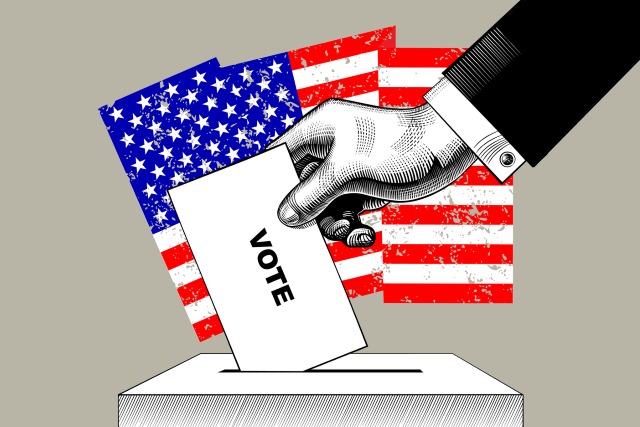Safeguards for using Artificial Intelligence in election administration

Election administration is an essential component of the democratic process, but is also very challenging. The number of voters involved, which can climb into the tens of millions, requires the use of systems that have been fine-tuned for maximum efficiency. Managing the complexity of those systems, which are often spread out over vast geographical areas, is daunting, especially considering the task often relies on a volunteer staff with high turnover rates. Looming over the entire enterprise is the requirement for unquestionable accuracy and crystal-clear transparency.
Artificial intelligence, which thrives at optimizing systems for maximum efficiency and accuracy, has the potential to provide valuable support for election administration. Leveraging it for that purpose, however, also requires that strong safeguards be put in place.
The value AI brings to election administration
Voter registration is a key step in election administration that involves creating and maintaining with maximum accuracy a vast database of voter information. The voter database must be both up-to-date and easily accessible for the voting process to proceed with efficiency and fairness.
Election administration also involves the complicated process of ballot creation. Effective ballots bring together readability and clear instructions in a format that prevents confusion and ensures accuracy. Bad ballot design, which has led to questionable results in recent US elections, has the potential to derail elections.
Tabulating votes and providing results is the final step in election administration. Success in this area involves conducting accurate counts, transmitting results securely, and providing documented audits that prove the process was facilitated without interference.
AI has the potential to streamline and enhance each of these elements. It can assist in building and maintaining voter databases, empowering natural language processing of voter forms, and conducting reviews to rapidly identify errors, duplications, and other issues. AI can assess readability and clarity in ballot design, suggesting improvements. It can also provide audit support in the tabulation phase.
The safeguards needed to ensure the proper use of AI
While AI has already proven its potential for increasing efficiency, speed, and accuracy for a wide range of processes, it hasn’t proven to be infallible. Inaccurate and biased information contained in the data used to train AI can show up in its results. The term “AI hallucination” was coined to describe false or misleading information generated by AI and presented as accurate.
If AI is to play a helpful role in election administration, the concerns surrounding its potential for errors must be addressed. One step in that process is ensuring transparency. The public must be provided with a clear understanding of how AI is being used in the election administration process.
Voters should know when and where AI is being used, whether that be in registration management, auditing, or cybersecurity. Ideally, election officials should provide an explanation presented in layman’s terms of the data used to train AI and steps taken to test for and remove biases.
Extensive auditing is also important for any AI used to support election administration. Auditing should be carried out by an independent third-party auditor and conducted on the latest version of the applications being used. The ultimate goal of auditing is to ensure that the accuracy, fairness, and security of the AI-powered tools meet the established requirements of the election process.
Election officials that adopt AI-powered tools also must be prepared to answer the ethical questions voters have about AI. The potential for bias and unfairness is a chief concern that has arisen surrounding the use of AI. The “black box” quality of AI, which refers to the lack of transparency regarding how AI is being developed and how it determines its outcomes, is another ethical concern that must be addressed. To gain public trust, election officials must be willing to reveal the processes being used to develop AI-driven tools, how they are supporting elections, and the impact they will have on the process.
As officials consider the variety of ways AI can enhance the effectiveness of election administration, the key consideration must always be protecting the voter. Any potential for excluding or endangering voters introduced by AI must be identified and nullified. Accuracy must be assured, transparency must be provided, and any ethical considerations must be acknowledged and addressed if AI is to play a role in election administration.
Image credit: Maisei Raman / Shutterstock

Ed Watal is an AI Thought Leader and Technology Investor. One of his key projects includes BigParser (an Ethical AI Platform and Data Commons for the World). He is also the founder of Intellibus, an INC 5000 “Top 100 Fastest Growing Software Firm” in the USA, and the lead faculty of AI Masterclass -- a joint operation between NYU SPS and Intellibus. Forbes Books is collaborating with Ed on a seminal book on our AI Future. Board Members and C-level executives at the World's Largest Financial Institutions rely on him for strategic transformational advice. Ed has been featured on Fox News, QR Calgary Radio, and Medical Device News.
